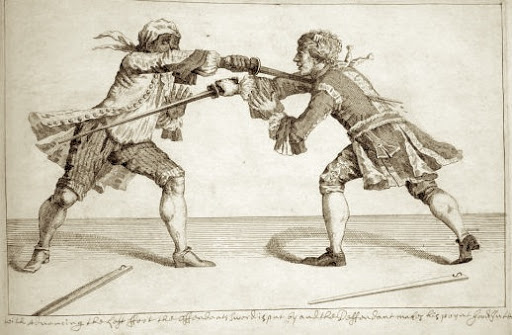ONLINE PRIVACY SEMINAR: Historical Notions of Privacy in Latin America with Prof. Mariana Thompson Flores

This series of seminars aims to address historical issues of privacy in Latin America, in Europe, and transregionally. Each month, one of the participants will present a work-in-progress, which will be circulated in advance and discussed online via zoom. This event is open, and scholars of all countries are welcome to join. Meetings will be held on the last Thursday of the month at 17:00 CEST/CET. Exceptions will be informed in advance. The language of the seminar is English. If necessary, questions in Portuguese or Spanish can be posted on the chat and will be translated.
Prof. Mariana Thompson Flores will present her work-in-progress
Private and public dimension of duelling in Brazil – 1870-1930
Unlike other Latin-American countries, Brazil does not have much research about the occurrence of duels, almost leading us to believe that the duels were not very frequent in Brazilian territories. In other words, duels were not part of the Brazilian bourgeoisie repertory. Despite this initial impression, it is incorrect to assume that duels were not part of the mentality and custom of the Brazilian elite, although maybe not in the same proportions as its neighbouring countries.
What we saw in the nineteenth and early twentieth century, with the dissemination of duels and the Gentlemens’ codes, is the sum of different factors: the triumph of the bourgeois ideals and of individualism, the high point of the valorization of virility, and the extreme standardization of customs, which was part of the civilizing process.
Written as official codes, with articles and paragraphs, the Gentlemens’ codes described all the duel rituals (from the initial insult, how to challenge for a duel, the choice of the witnesses, weapons, place, the type of duel, etc). The Gentlemens’ codes present a discourse/rhetoric legitimizing their legal validity, even as an extra-judicial instrument, and the main question here: the defence of the right to private justice.
Despite claiming the legitimacy of settling honour questions in private, without the intervention of the State, the duel (as well as private justice) brings a paradoxical question between private and public to the forefront. At the same time, that honour is a personal value, its recognition is public. In this sense, the offence, as well the recovering of the insulted honour, must be made public. The role of the witnesses and the publicity of the duel cases in the newspapers are crucial in this context. However, rather than the need for an audience signifying a total publicization of the duel occurrence, this paper will show that it is more accurate to think about it as a level of privacy since the witnesses were chosen based on trust and intimacy. On the other hand, mainly in the case of Brazil, the need for publicity was even more important than the contest itself. A publication in the newspaper about a duel was considered very important to the honour of the involved.
Here we have again the paradoxical public and private divide involving duels. Since it is illegal, it should happen in private or in secret. But, the need for a public dimension indicates that the newspapers will be a good source for the history of duelling in this context. Much of the research on this subject is based on newspapers because of this public dimension and the need for social recognition.
At the moment, the research at the Hemeroteca Digital Brasileira has provided several records of duel cases in Brasil, which indicate this contradiction between the private and public dimension of this private justice practice. The records in that collection will be the focus of this paper.
